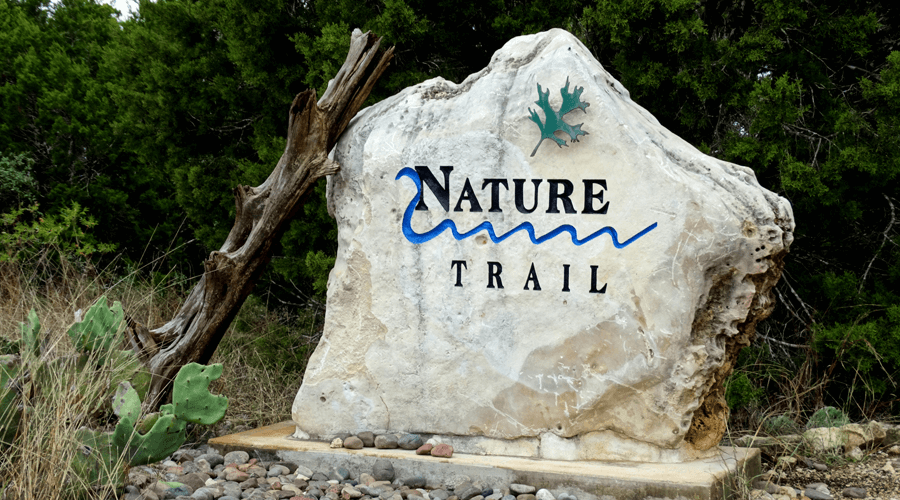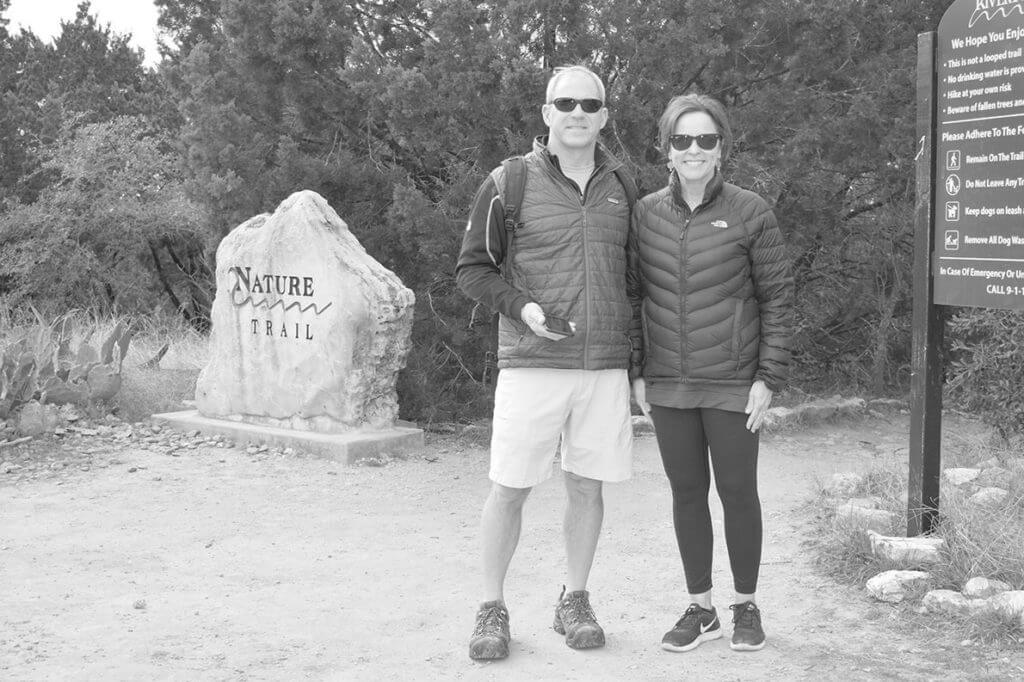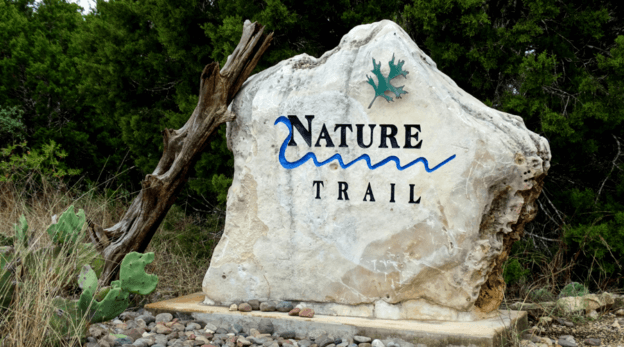
By LESLEE BASSMAN, Four Points News
Beginning March 2, trail users who are not residents of River Place’s Limited District may want to start bringing a credit card to the neighborhood’s popular pathways.
With Board Member Art Jistal absent from the Jan. 8 special-called meeting, the Limited District unanimously approved a fee schedule for nonresidents to use the River Place nature trail. The district is responsible for solid waste disposal along with maintaining the community’s parks and trails.
“We’ve been trying for a little over a year to come up with a strategy to try and manage the traffic on the trail,” Limited District President Scott Crosby said. “We have several of those trails and they are just extremely crowded, especially on weekends.”
The daily fee of $10 per person and $10 per animal will be assessed to hike the trail, Crosby said, with children ages 12 and under free when accompanied by an adult. The dog fee stems from complaints the district has heard about a number of dogs on the trail that are off leash despite trail signs requiring dogs to be on their leashes, he said.
“The probably number one complaint other than just the trail being overcrowded is that there are dogs running back and forth,” Crosby said. “Some interactions between those people without dogs and those people with dogs have not gone well.”
Gail and Bill Baker, who were visiting the trail from Columbia, Missouri, were surprised to discover the hike they had just finished Jan. 30 would soon have a fee. The couple said they learned about the trail from a Google quest and a local sports shop.
“It’s a great trail but (a $10 fee) is way too expensive,” Bill Baker said, adding he probably won’t pay the charge next time, preferring to find a hike elsewhere.
Gail Baker said she thought the fee would “deter (outsiders) for sure.”
The district will contract with a temporary employment agency to place individuals at each of the three trail entrances to collect the fees that can only be paid with a credit card, Crosby said. The target date to begin the fee assessment is March 2, he said.
“The whole purpose of this (trail fee structure) is to have those who are using the trail share in our cost given that currently only the (Limited District) residents are paying for the entire cost through their property tax assessments,” Crosby said.
Further reasons cited by Crosby for the new charges include establishing capital and maintenance funds due to the increased usage to maintain the district’s parks and trails at their current levels; reducing the overcrowding of the trails; and improving safety, not only on the trails but on the streets adjacent to the trails.
The charges will only be incurred on weekends, to start, he said.
“We may expand the hours and days (to charge for trail use) depending on the amount of traffic we actually have on the trail,” Crosby said. “We haven’t exactly set the times yet but it will be 8 in the morning to perhaps 2 or 3 o’clock in the afternoon (for charges). We’ll just have to manage and look at the volume we have at different times of the day. We can expand or contract our collections based upon that.”
Limited District residents will be able to use the trails free of charge “because they are currently paying for the trails through their property taxes,” he said. However, residents who live in River Place but are outside of the district’s jurisdictional boundaries “will be considered nonresidents” and required to pay the trail fees, Crosby said.
Residents will be able to obtain a membership card to identify their residency in the district by registering for that card on the district’s website, www.riverplacelimiteddistrict.org, starting in mid-February, he said.
Signage will be posted at each of the trailheads in early February to notify trail users of the impending fee charge, Crosby said.
Although the funds collected from the trail fees will go directly into the Limited District General Fund, staff does not yet know how much may be collected under this new process, he said.
“We’re hoping the fee structure will reduce the volume (of trail users),” Crosby said. “We’re certainly hoping the costs we will incur to have people man the trailheads to collect (fees), that we will certainly earn enough revenue to cover their cost.”

Columbia, Missouri-residents Gail and Bill Baker rest after hiking a River Place trail Jan. 30. The couple was surprised to learn the River Place Limited District will soon impose a charge for non-residents to use the trails. LESLEE BASSMAN


